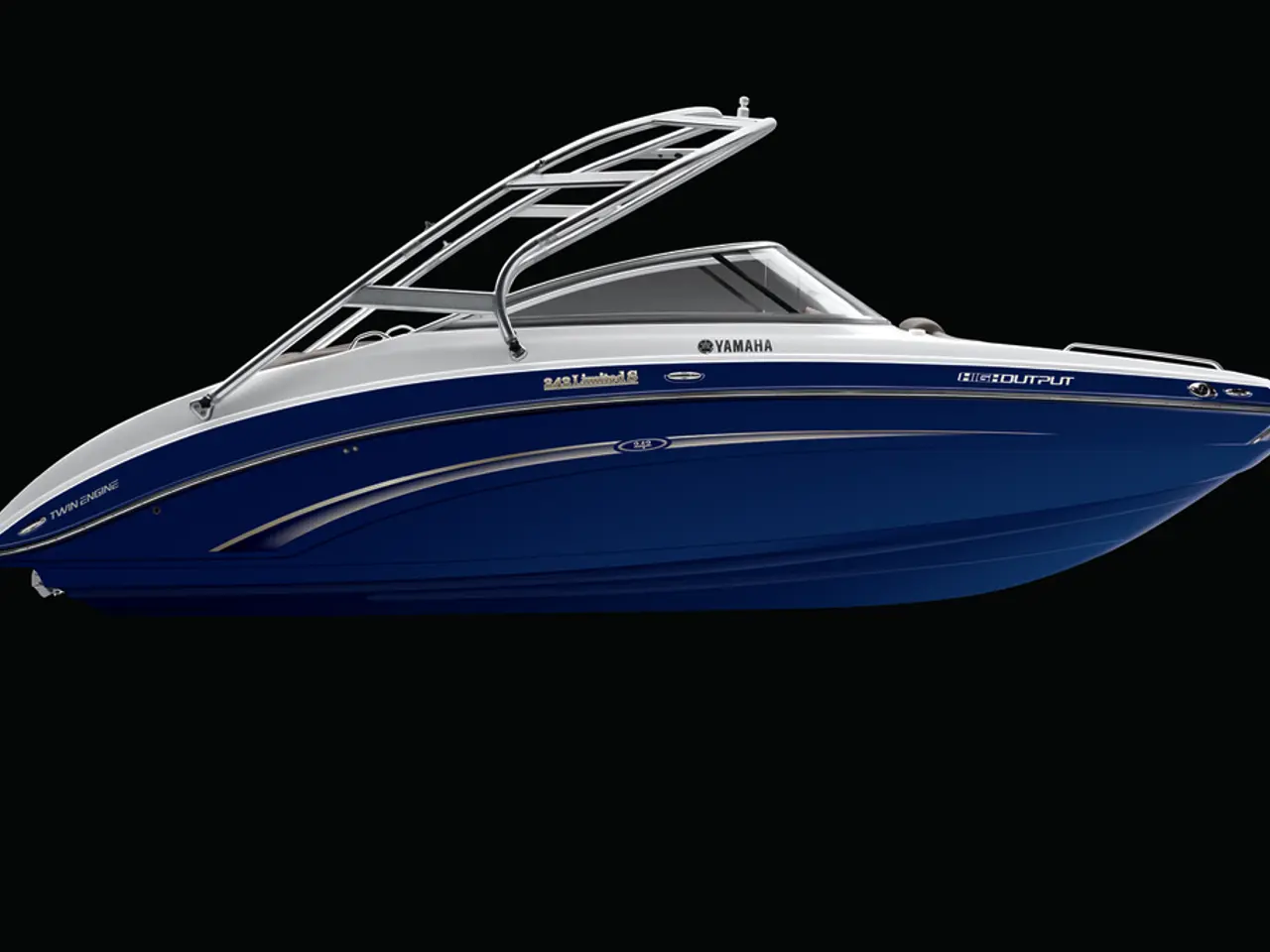Giant joins group of regulars
Optimized Container Ships on the Kiel Canal: A Step Towards Carbon Neutrality
The deployment of optimized container ships on the Kiel Canal is proving to be a significant move for major shipping companies, particularly French giant CMA CGM, in their quest for carbon neutrality. These vessels, engineered for efficiency, offer time and fuel savings, making them an attractive choice for strategic routes like the Kiel Canal.
CMA CGM, which operates over 600 ships globally, has ordered ten of these freighters, each costing $62 million. One such vessel, the "CMA CGM Mermaid," was built at the Hyundai Mipo Dockyard in South Korea. With a container capacity of over 2,000 standard containers (TEU), the "CMA CGM Mermaid" can handle the passage without tugboats, requiring only one tugboat to enter the Kiel Canal locks.
For CMA CGM, a company committed to reducing carbon emissions, these optimized vessels offer a dual benefit: faster transit times due to the canal's shortcut between the North Sea and the Baltic, and lower fuel usage because of more efficient ship configurations and operational practices.
The acquisition of these freighters allows for the use of green fuels such as Bio-LNG and green methanol. This aligns well with industry trends toward digitalization, energy-efficient vessel designs, and the adoption of alternative fuels, all critical elements in the shipping industry's efforts to meet International Maritime Organization (IMO) environmental targets and the carbon neutrality ambitions of major operators.
Looking to the future, the ongoing evolution of container ships includes greater automation in cargo handling, digital optimization tools, and the adoption of green technologies such as LNG, ammonia, hydrogen fuels, and electric propulsion. These advancements will enhance the sustainability and economic attractiveness of shipping through narrow canals like the Kiel Canal.
By 2025, six of these new container giants are expected to operate in Northern Europe, with main ports being Hamburg, Bremerhaven, and Rotterdam. Shipping companies, including CMA CGM, aim to be carbon neutral by 2050. The integration of these optimized vessels into their fleets is a significant step towards achieving this goal.
| Aspect | Current Impact | Future Prospects | |--------------------------------|-------------------------------------------------|------------------------------------------------| | Time savings | Faster canal transit reduces voyage times | Integration with port automation to cut further delays[1][3] | | Fuel savings and emissions | Optimized ship design and lower speeds save fuel and reduce carbon emissions[1] | Expansion of energy-efficient propulsion and alternative fuels[3] | | Carbon neutrality alignment| Supports company goals for carbon emissions reduction through efficient operations| Adoption of digital tools and green technologies will facilitate net-zero ambitions[1][3] | | Operational advantages | Improved cargo handling efficiency reduces port dwell time and crewing requirements[1] | Smart logistics and autonomous vessel operation to enhance reliability and sustainability[3] |
In summary, CMA CGM and similar companies gain meaningful operational and environmental benefits by deploying optimized container ships on the Kiel Canal route, with promising enhancements expected as technology and green innovations mature through the late 2020s[1][3].
In the pursuit of carbon neutrality, CMA CGM's acquisition of optimized container ships, such as the "CMA CGM Mermaid," allows for the use of green fuels like Bio-LNG and green methanol, aligning with industry trends in finance that focus on digitalization, energy efficiency, and alternative fuel adoption. In the future, these advancements in technology, such as automation, digital optimization tools, and green technologies, will play a crucial role in the shipping industry's efforts to meet the International Maritime Organization's environmental targets and achieve carbon neutrality.




